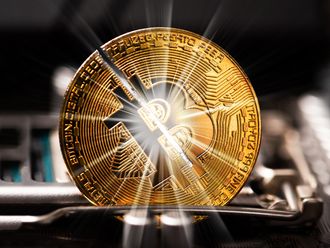Abu Dhabi: The UAE’s equity indexes dropped around 1.5 per cent each on Monday as investor sentiment took a dive supported by a plunge in China’s benchmark index and mounting tensions between Saudi Arabia and Iran.
The Dubai Financial Market (DFM) index dropped 1.61 per cent to reach 3,084.43 amid significantly low liquidity of just Dh267.5 million. The Abu Dhabi Securities Exchange (ADX) general index fell 1.31 per cent to reach 4,215.58.
On Monday, a seven per cent tumble in the Chinese CSI300 share index prompted the bourse to halt trading for the rest of the day. Meanwhile, Saudi Arabia severed ties with Iran after protestors in Tehran set fire to the kingdom’s embassy.
Bahrain followed Saudi’s footsteps, and severed ties with Iran, with the UAE downgrading its diplomatic ties with Iran after condemning the violence there.
Saleem Khokhar, head of fund management at the National Bank of Abu Dhabi’s asset management group, pointed that the drop in the UAE’s indexes was not an isolated incident. European and other GCC markets were also in the red on the back of the dive in the CSI300 index.
“The tension between [Saudi Arabia and Iran] is a double-edged sword. Yes, tensions do rise, but as we’ve seen, oil prices act as a natural hedge to that, so I think we’re going to see that both countries continue to have tensions. If that grows in terms of severity, oil prices combat that somewhat,” he said.
On Monday, with tensions rising between both countries, oil prices jumped nearly three per cent in early trade, but retreated later to reach $37.8 for Brent crude at 5pm (UAE time).
In a note from Forex Trading (FXTM), Lukman Otunuga, a research analyst, said that oil buyers found “heavy encouragement” following the tensions, with potential for further volatility if tensions escalate.
“I think that the market reaction towards what is currently emerging out of Saudi Arabia and Iran just goes to show that there is still interest in purchasing oil.
It is well-known to everyone that Saudi Arabia is a massive oil producer and Iran is expected to also begin unleashing its own production in 2016, meaning traders have found a reason to push oil prices higher,” he said.
However, NBAD’s Khokhar said it was too early for the rhetoric to have a real impact on equities.
So, what does the latest tension mean in an already challenging geopolitical environment?
“I can’t see too many positive catalysts out there at the moment. It’s a difficult environment in terms of sentiment. I suppose what we’re all looking towards is the earnings, and that’s what I think will set the tone for the first quarter.
It may not necessarily be a positive catalyst…but I don’t think we’re expecting terrible numbers — we are expecting slightly lower numbers, no doubt, but not aggressively so,” he said.
Khokhar added that equity markets may bottom out by the end of Q1 or Q2 whereas oil prices may not bottom out until much later in the year
On DFM where almost every stock was in the red, Arabtec’s share prices fell 3.91 per cent, Gulf Finance House dropped 3.73 per cent, and Emaar slid 1.79 per cent.
Amlak plunged 6.38 per cent, as Dubai Islamic Bank and Amanat ended 1.48 per cent and 1.25 per cent lower.
On ADX, Sharjah Cement and Industrial Development Co. topped the gainers’ list with a 5.88 per cent increase, followed by Gulf Pharmaceutical Industries with 0.8 per cent, and Union National Bank with 0.43 per cent.
Of the 32 stocks traded on DFM, 27 went down, four went up, and one remained unchanged. Of the 30 stocks traded on ADX, 21 declined, three advanced, and six remained unchanged.












